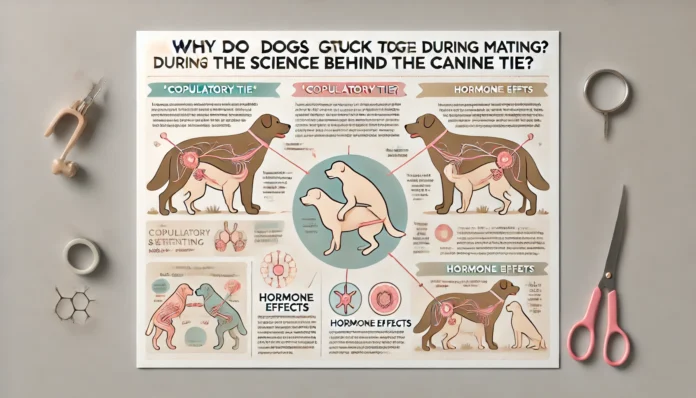Table of Contents
Last Updated on February 22 , 2025 by
Witnessing dogs locked together during coupling can be alarming for favored owner unfamiliar with dogtooth reproduction . This phenomenon , known as the “ coital tie ” or “ mating standoff , ” is a natural and instinctive part of the breeding unconscious process . But why does it happen ? This article explores the anatomy , biological science , and evolutionary purpose behind this behavior , addresses common myth , and provides actionable advice for dog owners .

What Is the Canine Copulatory Tie?
The copulatory draw happens when a manful hound ’s bulbus glandis ( a part of the penis ) swells inside the female person ’s vagina , make a forcible whorl that lasts 5–30 minutes . This assure successful insemination and is observed in masher , Fox , and other canids .
The Anatomy Behind the Tie
The Role of Hormones
Evolutionary Advantages of the Tie
Common Misconceptions Debunked
Implications for Dog Owners
Frequently Asked Questions
1 . How long does the mating affiliation unremarkably last?Most ties last 10–30 minutes . seldom , they may extend to 45 minute .
2 . Is the tie necessary for pregnancy?While uncouth , pregnancy can fall out without a tie , though chance are lowly .
3 . Can you prevent the copulatory tie?No — it ’s instinctive . Spaying / neutering is the only way to avoid mating behavior .
4 . Should I attempt to dissever stuck dogs?Never . Forcible legal separation risks vaginal or penial trauma . Keep them serene instead .
5 . Do alter frankfurter still experience the tie?Yes , if mating occurs shortly after altering , residual hormones may allow a brief tie .
References
Additional Resources
ConclusionThe cuspid copulatory affiliation is a bewitching adaptation rooted in physique and evolution . While it may seem concerning , it ’s a normal part of reproduction that ensures mintage survival . Responsible pet ownership — through pedagogy and proactive veterinary care — can help manage this lifelike process safely .